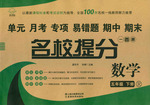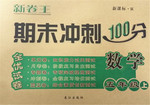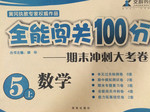题目内容
【题目】第二节 (共5小题;每小题2分,满分10分)
根据短文内容,从短文后的选项中选出能填入空白处的最佳选项。选项中有两项为多余选项。
There is distinction between reading for information and reading for understanding.【1】The first sense is the one in which we read newspapers, magazines, or anything else. 【2】Such materials may increase our store of information, but they cannot improve our understanding. And clearly we don’t have any difficulty in gaining the new information, for our understanding was equal to them before we started. Otherwise, we would have felt the shock of puzzlement.
The second sense is the one in which we read something that at first we do not completely understand. Here the thing to be read is at the first sight better or higher than the reader. The writer is communicating something that can increase the reader’s understanding.
Otherwise one person could never learn from another. Here “learning” means understanding more, not remembering more information.
What are the conditions in this kind of reading? First, there is inequality in understanding.
【3】 Besides, his book must convey something he possesses and his potential readers lack. Second, the reader must be able to overcome this inequality in some degree. And he should always try to reach the same level of understanding with the writer. If the equality is approached, success of communication is achieved.
【4】It is the least demanding and requires the least amount of effort. Everyone who knows how to read can read for entertainment if he wants to. In fact, any book that can be read for understanding or information can probably be read for entertainment as well.
A. Thus, we can employ the word “reading” in two distinct senses.
B.Such communication between unequals must be possible.
C.We can get access to the content of those materials easily.
D.The writer must be “superior” to the reader in understanding.
E.The writer should have a better communicating skill.
F.Besides gaining information and understanding, there’s another goal of reading—entertainment.
G. Reading for entertainment is capable of increasing our understanding for information.
【答案】
【1】A
【2】C
【3】B
【4】D
【5】F
【解析】
【1】解析:根据第二段提到the first sense和第三首开始提到the second sense都明确指向A项的in two distinct senses,而E选项的thus表示的因果逻辑关系也和前一句reading for inofrmation和understanding合理链接,故A项正确。
【2】解析:后一句话“这样的材料增加我们信息的存储,但是不能提到我人瓣理解”,所以在此处与理解无关,与信息有关,并且后句话中的such materials的代词指代作用,故选C项。
【3】解析:前句话强调作者可以提高读者的理解力。后句话强调读者可以从作者账目 学习。选项B的such communication 代词的指代作用可以对应前面的is communicating , B项可以和前后文对应
【4】解析 :前句话inequality in undeing强调了读者和作者的不对等,满足这个信息的有B项和D项。后句话中his book指代前句话某个人,故D项合适。
【5】解析:后两句中提到can read for entertainment 非常明显提示小题5答案在F和G两个包含entertainment 的信息中,而文章第四段讲得分别是reading for information和reading for understanding,第五段reading for entertainment 是新的一分支结构,故F 项besides这个逻辑关系非常附属前后结构,故选 F 项。

 名校提分一卷通系列答案
名校提分一卷通系列答案 课程达标测试卷闯关100分系列答案
课程达标测试卷闯关100分系列答案 新卷王期末冲刺100分系列答案
新卷王期末冲刺100分系列答案 全能闯关100分系列答案
全能闯关100分系列答案【题目】根据短文内容,从短文后的选项中选出能填入空白处的最佳选项。选项中有两项为多余选项。Worry problems are everywhere in our daily life. How to solve them? The answer is that we must equip ourselves to deal with different kinds of worries by learning the three basic steps of problem analysis. The three steps are:Get the factsWhy is it so important to get the facts? Unless you have the facts, you can’t possibly attempt to solve your problem intelligently. Without the facts, all you can do is wondering around in confusion. It is not an easy job to get facts. When you are worried, your emotions are riding high. 【1】.When trying to get the facts, you can pretend that you are collecting this information not for yourself but for some other person.【2】. You can also pretend that you are a lawyer preparing to agree. Try to get all the facts both on your side and the other side of the case. You will generally find the truth lies somewhere in between.【3】 Whenever you are worried, write down the questions that make you worry. And write out all the various steps you could take and then the probable consequences of each step. For example, what am I worrying about? What can I do about it? Here is what I’m going to do about it. After carefully weighing all the facts, you can calmly come to a decision.Act on that decision.【4】.How can you break the worry habit before it breaks you? Crowd worry out of your mind by keeping busy. Plenty of action is one of the best ways to cure worry 【5】. If you know a situation is beyond your power, say to yourself: “ It is so; it can’t be otherwise.” Don’t permit little things to ruin your happiness. Try to cultivate a mental attitude that will bring you peace and happiness.
A. Analyze the facts. |
B. Accept what can’t be avoided. |
C. But here are two ideas that can help you see the facts in a clear and objective way. |
D. There comes a time when you must decide and never look back. |
E. Unless you take your action, all your face-finding and analysis is a sheer waste of energy. |
F. Decide how much anxiety a thing may be worth. |
G. This will help you to take a cold and fair view of the evidence |